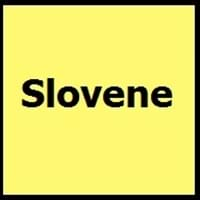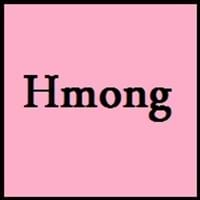Slovene vs Hmong
Countries
European Union, Slovenia
China, Laos, Thailand, United States of America, Vietnam
National Language
Austria, Croatia, Hungary, Italy, Slovenia
China, Gambia, Laos, Thailand, United States of America, Vietnam
Second Language
Not spoken in any of the countries
Not spoken in any of the countries, Republic of Brazil
Speaking Continents
Europe
Asia
Minority Language
Austria, Hungary, Italy
Not spoken in any of the countries
Regulated By
Slovenian Academy of Sciences and Arts
Not Available
Interesting Facts
- The Freising Monuments is the oldest preserved records of written Slovene from 10th century.
- The first Slovene book was printed in 1550.
- Hmong language may not be so popular at first sight, but it has rich history and various dialects are spoken by millions of people.
- Hmong language came from western part of China.
Similar To
Serbo-Croatian
Not Available
Derived From
Not Available
Not Available
Alphabets in
Slovene-Alphabets.jpg#200
Hmong-Alphabets.jpg#200
Writing Direction
Left-To-Right, Horizontal
Left-To-Right, Horizontal
Hello
Halo
Nyob zoo (Nyaw zhong)
Thank You
Hvala
Ua tsaug (Oua jow)
How Are You?
Kako se imate?
Koj nyob li cas (Gaw nyaw lee cha)
Good Night
Lahko noč
zoo hmo
Good Evening
Dober večer
zoo yav tsaus ntuj
Good Afternoon
Dober dan
zoo tav su
Good Morning
Dobro jutro
zoo thaum sawv ntxov
Sorry
Oprostite
Thov txim (Thaw zhee)
Bye
Nasvidenje
Not Available
I Love You
Ljubim te
Kuv hlub koj
Excuse Me
Oprostite
zam txim rau kuv
Dialect 1
Prekmurje Slovene
Hmong Njua
Where They Speak
Hungary, Slovenia
Laos
Dialect 2
Resian
Hmong Daw
Where They Speak
Italy
China
How Many People Speak
Not Available
Dialect 3
Styrian
Hmong Do
Where They Speak
Slovenia
Vietnam
Speaking Population
Not Available
Native Name
Not available
Hmong
Alternative Names
Slovenian, Slovenscina
Mong
French Name
slovène
hmong
German Name
Slowenisch
Miao-Sprachen
Pronunciation
[slɔˈʋèːnski ˈjɛ̀ːzik], [slɔˈʋèːnʃt͡ʃina]
Not Available
Ethnicity
Slovenes
Hmong people
Language Family
Indo-European Family
Hmong–Mien Family
Subgroup
Not Available
Not Available
Branch
Not Available
Not Available
Early Forms
No early forms
No early forms
Standard Forms
Slovene
Hmong
Signed Forms
Not Available
Not Available
Scope
Individual
Macrolanguage
ISO 639 1
sl
No data available
ISO 639 2/T
slv
Not Available
ISO 639 2/B
slv
Not Available
ISO 639 6
Not Available
Not Available
Glottocode
slov1268
firs1234
Linguasphere
53-AAA-f
No data available
Language Type
Living
Living
Language Linguistic Typology
Not Available
Not Available
Language Morphological Typology
Fusional
Not Available
Slovene and Hmong Language History
Comparison of Slovene vs Hmong language history gives us differences between origin of Slovene and Hmong language. History of Slovene language states that this language originated in 972-1093 whereas history of Hmong language states that this language originated in 19. Family of the language also forms a part of history of that language. More on language families of these languages can be found out on Slovene and Hmong Language History.
Slovene and Hmong Greetings
People around the world use different languages to interact with each other. Even if we cannot communicate fluently in any language, it will always be beneficial to know about some of the common greetings or phrases from that language. This is where Slovene and Hmong greetings helps you to understand basic phrases in Slovene and Hmong language. Slovene word for "Hello" is Halo or Hmong word for "Thank You" is Ua tsaug (Oua jow). Find more of such common Slovene Greetings and Hmong Greetings. These greetings will help you to be more confident when conversing with natives that speak these languages.
Slovene vs Hmong Difficulty
The Slovene vs Hmong difficulty level basically depends on the number of Slovene Alphabets and Hmong Alphabets. Also the number of vowels and consonants in the language plays an important role in deciding the difficulty level of that language. The important points to be considered when we compare Slovene and Hmong are the origin, speaking countries, language family, different greetings, speaking population of these languages. Want to know in Slovene and Hmong, which language is harder to learn? Time required to learn Slovene is 44 weeks while to learn Hmong time required is 44 weeks.





